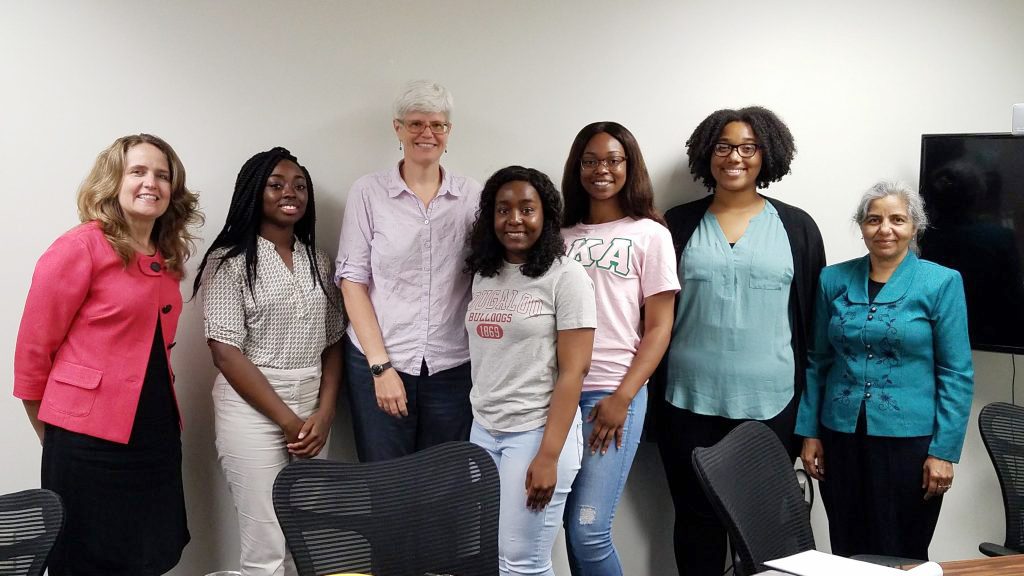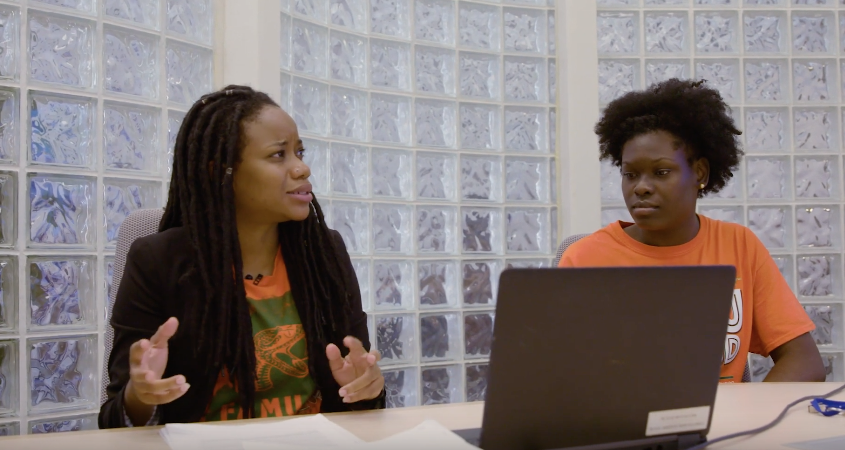Two faculty members involved in a CRC-facilitated summer research program in 2019 have been awarded follow-on funding to continue their work.
The Department of Homeland Security (DHS) Science and Technology Directorate (S&T) announced that eight faculty members from Minority Serving Institutions (MSI) across the United States were recently selected to receive funding awards to continue the research they conducted last year through the Summer Research Team (SRT) Program for Minority Serving Institutions at several DHS S&T Centers of Excellence (COE).

Among the faculty selected were Dr. Michelle Dovil of Florida A&M University (FAMU) and Dr. Kulwinder Kaur of Elizabeth City State University (ECSU). Last summer, Dr. Dovil worked with CRC partners at North Carolina State University on a project titled “The Place We Call Home: A Critical Analysis of the Risk Perceptions and Place Attachments of Coastal Communities at Risk for Sea Level Rise in North Carolina.” Dr. Kaur worked with partners at Old Dominion University on a project titled “Project: An Examination of Mental Health Effects of Hurricanes in Coastal North Carolina to Strengthen the Efforts of Resilience.”
The SRT Program, administered by S&T’s Office of University Programs, engages early career faculty, undergraduate and graduate students in research at the COEs, providing opportunities to better understand DHS mission and research needs and make advances in DHS research areas.
Dr. Dovil said she hopes to continue work conducted last summer in Wilmington and Elizabeth City, N.C. She and two FAMU students were able to gather 300 survey responses on residents’ views of their sense of place and perceptions of environmental risks, including coastal flooding and sea-level rise. This year she intends to add in-depth interviews, expanding on the responses received last year.

“Our main goal is to add a qualitative component consisting of 80-90 in-depth interviews to help address DHS’s pressing concerns impacting the public safety of coastal communities,” she said.
Watch the NCSU-FAMU Summer Research Team video to learn more about the team’s study design and key findings.
Dr. Kaur said she plans to continue to work on the mental health impacts of hurricanes on eastern North Carolina residents, particularly in Bertie County. The interviews she and her students conducted last summer revealed that existing mental health services may not be appropriate for the needs of residents who have experienced several years of hurricanes and flooding. She plans to use the Photovoice method as a technique to get information from participants, in addition to focus groups, individual interviews and more survey questionnaire administration.
“It is imperative that for complete resilience, the population has recovered from both physical and mental injuries associated with natural disasters, in addition to infrastructure building,” she said in a recent interview with local media.
More on Dr. Kaur’s students’ summer experience can be found at https://sites.wp.odu.edu/odudhscrcproject/.
“Our nation’s MSIs serve as incubators for ideas, growth, and conduits through which students and researchers can support the homeland security mission. Our MSI partners go through an intensive initial research stage with our leading DHS COEs and have successfully demonstrated their ability to conduct high-impact research,” Matthew Coats, S&T’s Director of University Programs, said in a news release. “We are really excited about the continuation of the 2019 teams’ research projects. It’s a great opportunity. Through these types of programs, S&T is able to influence skill development, and put innovative and diverse budding professionals into environments where they can excel.”
